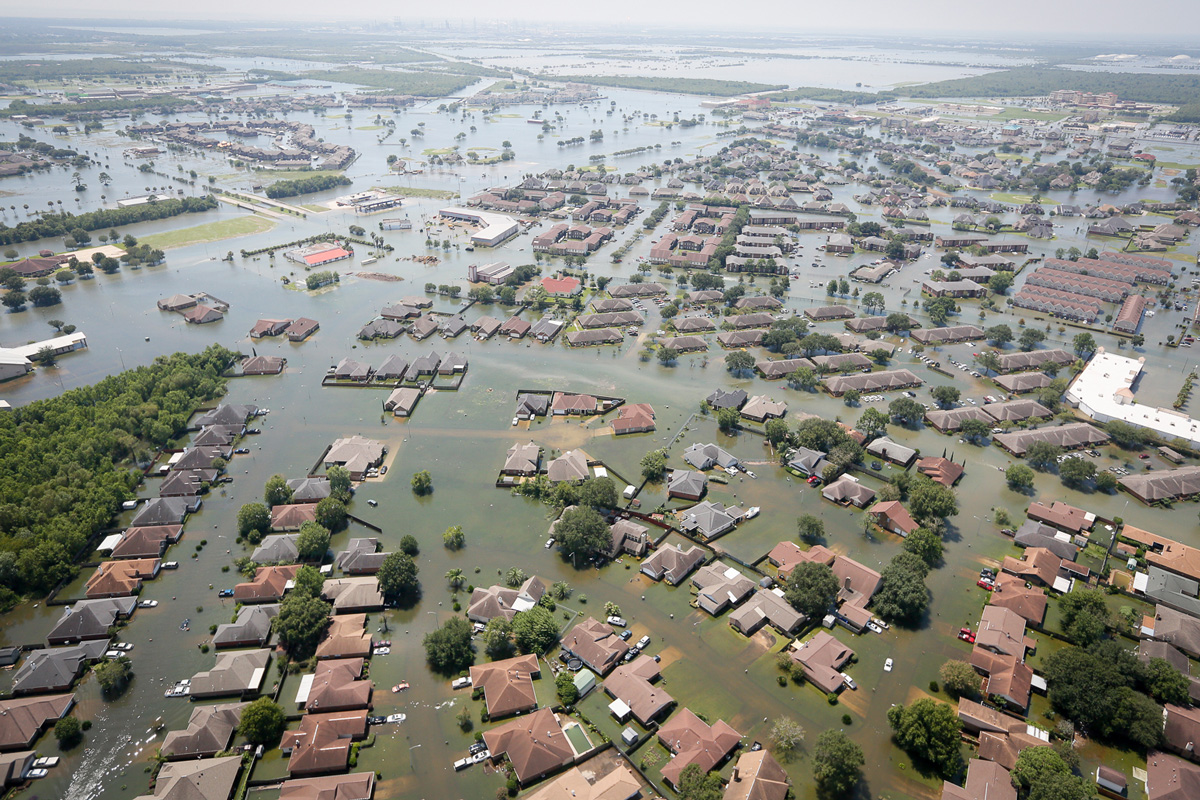
A panel of hurricane experts reviewed more than 90 research studies on the observed and projected changes in tropical cyclones for an updated summary of what the science says about the human influence on these devastating storms.

A panel of hurricane experts reviewed more than 90 research studies on the observed and projected changes in tropical cyclones for an updated summary of what the science says about the human influence on these devastating storms.
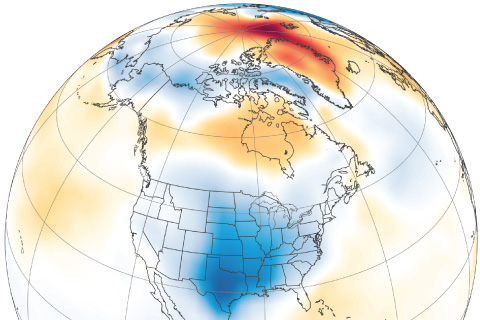
Polar vortex expert Amy Butler and Arctic expert James Overland offer perspectives on the February cold snap in the southern U.S., the polar vortex, and how the Arctic might influence mid-latitude weather.
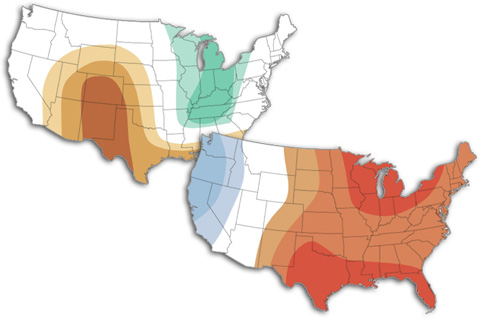
A warmer-than-average start to spring is favored for the central and eastern United States while a drier-than-average March is likely across the southern tier of the contiguous U.S.
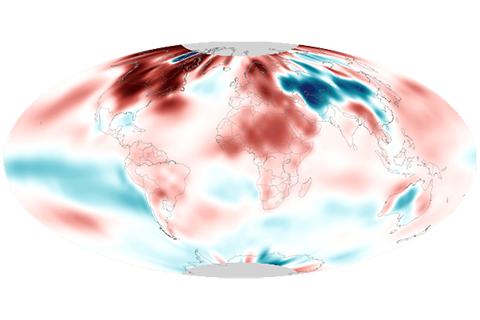
Despite the influence of La Niña, December 2020 was the eighth-hottest December on record helping 2020 become the second-hottest year on record.
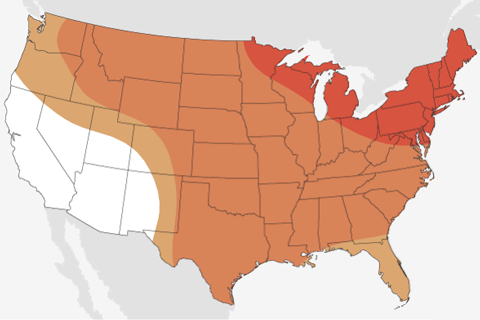
January 2021 is favored to be wetter and warmer than average for much of the country.
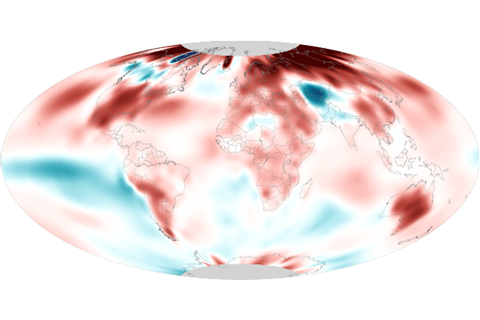
November 2020 was the second-warmest November on record, which increases 2020's chance of becoming the warmest year on record to over 50%.

Desde las enfermedades relacionadas con el calor, pasando por la propagación de plagas y patógenos en nuevas zonas, hasta la acumulación de toxinas en los mariscos, es probable que el calentamiento global tenga graves repercusiones en la salud pública.

Desde incendios forestales más grandes e intensos hasta inundaciones repentinas más frecuentes, el calentamiento global ha aumentado el costo de los peligros naturales. El gasto actual en infraestructura no es suficiente para cubrir las reparaciones y mejoras.
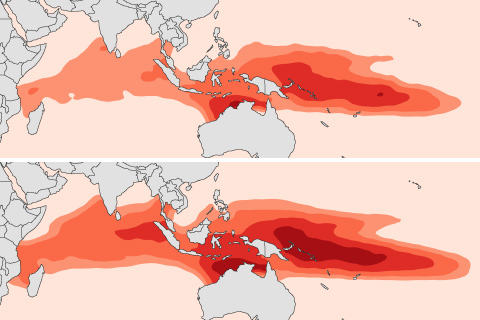
The large, warm pool of ocean water in the Indian and west Pacific Oceans has been growing warmer and expanding in size since 1900, impacting the Madden Julian Oscillation and regional rainfall.